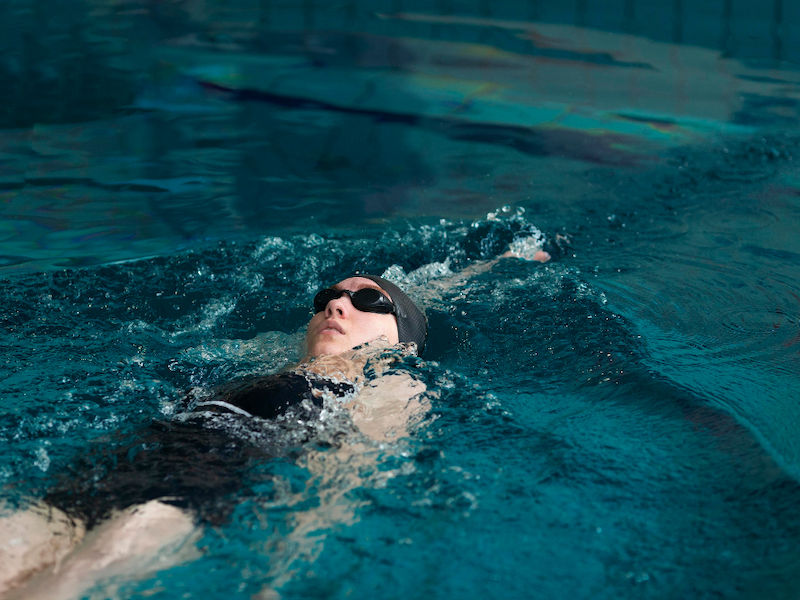 Have you looked at someone who exudes effortless confidence and felt a wave of admiration, mixed with envy? Well, you don’t need to. Confidence is an attitude “muscle” that can be developed, in the same way that you build your physical muscles.
Have you looked at someone who exudes effortless confidence and felt a wave of admiration, mixed with envy? Well, you don’t need to. Confidence is an attitude “muscle” that can be developed, in the same way that you build your physical muscles.
When you for your initial assessment at the gym, your trainer will ask you about your habits around diet and exercise. We need to start at the same place with developing confidence. The first step in creating change is an awareness of your disempowering behaviour. What are your physical habits? Do you stand like a confident person – head up, shoulders back, feet firmly planted – or do you hunch your shoulders, trying to be as invisible as possible, fidgeting from foot to foot, with your head dropped.
The nagging voice in his mind told him that he would fail,
You can condition your posture and movement, so that it becomes automatic. I saw an interview with the former Wimbledon Tennis Champion, Bjorn Borg, recently. He said that, despite his calm exterior, every time he stepped up to the base line to serve, he was terrified he would miss. The nagging voice in his mind told him that he would fail, he couldn’t continue at this level of success – and yet every time he threw the ball into the air, his muscle memory took over and he would serve, effortlessly.
So, with this awareness, you can decide to change your physiology to create greater feeling of confidence; as you make these adjustments, your emotions will shift accordingly and, if you do it continuously, it will become your default state.
The second area to address is what you are focusing on? Do you make an effort to keep in mind your achievements and successes, or do you let your thoughts dwell on feelings of inadequacy and failure. As Henry Ford once said, “If you think you can do a thing or think you can’t do a thing, you’re right.” We all have moments of greatness in our lives – we overcame the challenge of learning to walk, for one – and as we discipline our minds to think on the positive experiences instead of the negative ones, we are conditioning it to look for more of them. What we focus on expands, so let’s focus on the positive.
play down the problems you faced and describe your day as “interesting” you are actually diffusing the emotion attached
 The third are a to focus on is our language. The words we use can magnify or diminish an experience. Perhaps you have had some challenges at the office; when you arrive home your spouse asks you how your day went and you reply, “Dreadful!” rolling your eyes to the ceiling! This word contains a depth of emotion and will anchor you to the experience of having a bad day. If, instead, you decide to play down the problems you faced and describe your day as “interesting” you are actually diffusing the emotion attached to the events and they will not continue to have a negative effect on you.
The third are a to focus on is our language. The words we use can magnify or diminish an experience. Perhaps you have had some challenges at the office; when you arrive home your spouse asks you how your day went and you reply, “Dreadful!” rolling your eyes to the ceiling! This word contains a depth of emotion and will anchor you to the experience of having a bad day. If, instead, you decide to play down the problems you faced and describe your day as “interesting” you are actually diffusing the emotion attached to the events and they will not continue to have a negative effect on you.
Speak the language of confidence, whether you feel like it or not. If someone compliments you for how you are dressed or praises you for an achievement, learn to say, “Thank you very much!” instead of playing down the remark. Rehearse confident conversations, like an actor would, until you start to create a new self-image (and if you can’t be bothered to put the work in, don’t expect an Oscar!)
These three elements- physiology, focus and language – combine to form the Triad, which is the model created by Tony Robbins for managing our state. It is extremely effective, so use it to build those confidence muscles and explode the “C” myth.









Great article Felicity.
If you’re going to pick up a habit, confidence isn’t a bad one to have.
Lots of great tips to apply to everyday life.
Thanks for sharing.
Great article Felicity! Thanks for reminding us that confidence is a habit that we can cultivate, rather than something we have to be just born with.
This little nudge has reminded me not to be so lazy with my attitude.
Thank you!
Thanks for this Felicity, its good to know that this sort of thing can be conditioned into it by following these steps and it’s ok to feel a bit of self doubt now and then.
Ironically, I was even recognising a momentary lapse of confidence when I had to add the 2 numbers together when I filled in this form – “what if I can’t do the math?” I wondered, in a mild panic – but then I remembered and confidently put in th number, I am just like Bjorn.
I will try and practice the Triad and condition my confidence!
Great post!
This article is a great reminder of how ‘fake it til you make it’ actually works.
Our mental and physical lives are so closely connected that we can use these techniques to influence our behaviour very strongly.
Great advice, Felicity!
Thanks for this valuable advice, Felicity.
I’m reading a short book called Do The Work by Steven Pressfield, in it he talks about resistence and how those nagging doubts we all have never leave us – it’s how we deal with them that matters. Remaining positive and developing our ‘C’ muscles is the way to go!
Thank you for this brilliant article Felicity! I couldn’t agree more that confidence is a “muscle” that can be developed. If we spend time educating ourselves and going to the gym, we should also work on our personal development and not “shy” away from it!